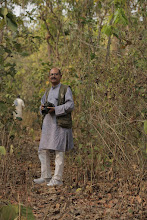Savarkar had seeded the idea of partition by propounding the theory of 'Hindurashtra' in the 1920s, much before Mohammed Ali Jinnha came up with his two-nation theory. When the country was partitioned in 1947 and India decided to remain a secular state, the followers of Savarkar were angered that India had not become a 'Hindurashtra'. So, one of them, Nathuram Godse, killed Mahatma Gandhi who was a living symbol of universal brotherhood and secular India.
The Muslims who had opted for Pakistan were far less in number than those who had chosen to stay back in India. It was their conscious decision to opt for the citizenship of a secular and democratic nation. But for the followers of Savarkar's ideology, a secular and democratic India was neither palatable nor acceptable. They had no reasons to celebrate either the Independence Day or the Republic Day.
When the Union government banned the Rashtriya Swayamsevak Sangh (RSS) and the Hindu Mahasabha after the assassination of Mahatma Gandhi, there was no sympathy for the Hindutva forces. The dogmatic Hindutva was stoutly rejected by the country's diverse religious, linguistic and ethnic people, who have had coexisted peacefully for centuries, enriching their respective cultural heritage through inter-mingling and sharing.
The Hindutva forces, represented in the political arenda by the erstwhile Jan Sangh (renamed later as the Bharatiya Janata Party), were rebuffed by the Indian electorate in all the successive elections to the Parliament and various state legislative assemblies but for the elections held in 1977.
The 1977 general elections proved a turning point in the post-independence political history of India. The elections were held under the shadow of a dictatorial rule. Prime Minister Indira Gandhi, indicted by a court for indulging in corruption during her election and facing a country-wide protest movement led by youths, had declared a state of emergency and suspended all the fundamental rights of the citizens, gagging the press, arresting her opponents and unleashing a reign of terror.
The Indian voters expressed their anger against the dictatorial rule through the ballot papers, routing the Congress party and electing to power the Janata Party, a newly formed coalition of opposition parties. Mainly because they had joined the Janata coalition that most of the Jan Sangh leaders got elected to the Parliament.
It was a negative vote against the dictatorial rule of Mrs. Indira Gandhi and not a positive vote for the Hindutva ideology that helped the Jan Sangh gain political legitimacy in the country. When the Janata government fell due to bickering among the constituentsand fresh elections were held, people voted Mrs. Gandhi and her Congress party back to power. The biggest loser was the Jan Sangh that had renamed itself as Bharatiya Janata Party. Only two BJP candidates managed to win their seats in the Lok Sabha.
From the subsequent events and developments, it would become clear that the BJP gained more political mileage from the follies of the Congress than from the popularity of the Hindutva ideology. It was because of fragmentation of opposition votes due to the presence of a large number of political parties in the election fray that the Congress was managing to win a majority in the Parliament and in state assemblies. Else, the popularity of the Congress party was fast depleting on account of corruption in high places, rising inflation, the culture of sycophancy and perpetuation of one family rule - that of Mrs. Indira Gandhi.
Wednesday, November 21, 2007
Hey Ram
Labels:
dictatorship,
Emergency,
Hindu Mahasabha,
Hindurashtra,
Hindutva,
India,
Janata Party,
Jinnha,
Mahatma Gandhi,
Narendra Modi,
Nathuram Godse,
Pakistan,
Partition,
RSS,
Savarkar,
VHP
Subscribe to:
Post Comments (Atom)

1 comment:
Well documented this post be. Although it is not unheard of, few Savarkar loyalists see beyond his freedom fighter prestige. In fact it was probably a good thing we had the British for Savarkar to lash out against.
Again, I agree with your proposition about the RSS, the VHP and the BJP not coming to power after all those years through some unfathomable latent goodness in them. Indira Gandhi, her son and their successors screwed up things so badly for the Congress.
And it is very unfortunate that the Gujarati people should be herded like sheep so in light of a few changes that were incumbent on the Modi government anyway. The BJP uses Hindutva exactly like China uses Maoism.
Aren't they both trying to wipe out the indelible stains of '92 and Tiananmen?
The Gujarati middle class is just stuck in a consumerist life cycle that is being pampered by his feeling that the Hindutva movement like the Nazi movement will better his life by cleansing the streets in whatever means necessary.
Post a Comment